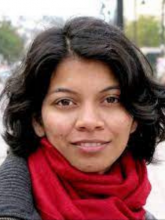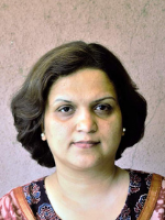This Virtual Exchange Workshop was a collaborative exercise undertaken by Masters in Landscape Architecture students at University of Florida and BNCA, India to a) understand and document unique aspects of play for children of lower socio-economic class, and b) study lessons from past precedents of built public play-spaces for similar communities. Two expert guest lecturers (one from India and one from USA) delivered lectures synchronously and asynchronously. With faculty guidance during both synchronous and asynchronous sessions, students worked in teams (6 BNCA students + 1 UF student in each team) and interacted extensively with each other throughout the duration of the workshop. Each team co-presented their findings about aspects of play, current environments used for play, and built precedents of play-spaces for children of lower socio-economic classes in India in a final presentation reviewed by the guest lecturers who provided them feedback on both the content and communication of their findings.
- Develop an understanding of existing spaces/condition of environments of play for children of communities belonging to low socio-economic class in Indian cities
- Develop an understanding of built works that can help address some issues and/or provide well designed spaces for play using cheap/recycled materials in India and across the world
Virtual Guest Speaker
Asynchronous Activities: 20 hours
Local group activities: 5 hours (approx.)
Individual Work: 10 hours (approx.)
Messaging Applications: WhatsApp
Collaborative Authoring Platforms: Google Slides, Google Form
Message Boards/Video boards: Padlet
- The age group of children to focus on is school aged and under. Students will work in teams of six or seven, assigned by the course instructors, and each team will have one UF student. In consultation with instructors, each student team will develop a series of questions to better understand the characteristics of childhood play and the physical environments for it in Indian cities for marginalized communities of low socio-economic status. Teams are collectively responsible for developing questions that they will be asking the families. Both BNCA and UF students are collectively responsible for developing a strong graphic/visual presentation of their work.
- BNCA students are primarily responsible for establishing contact and communicating with the families they are studying as well as for visiting play-spaces used by the families (virtually or in person). Each BNCA student will be responsible for gathering all data from each of their chosen family/group and about the sites of play for the children of the families/groups they are studying.
- UF students are primarily responsible for selecting and studying precedents that are excellent examples of built works that provide spaces for play to children from marginalized communities.
Week 1: Assignment introduction (Asynchronous)
Week 2: Team introductions (Synchronous + Asynchronous) and Individual Progress Discussions
Week 3: Team Progress Discussions: Synchronous and Individual Progress Discussions
Week 4: Team presentations (Synchronous)


